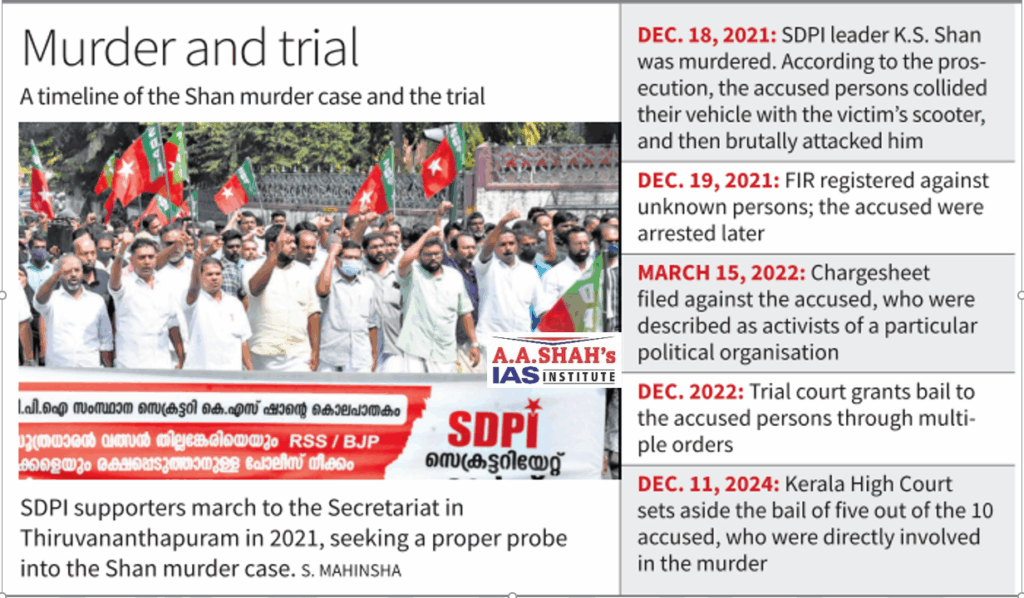Criminal past alone cannot be a ground to deny bail: SC
POLITY – JUDICIARY
24 SEPTEMBER 2025
- Criminal antecedents alone cannot be a ground to deny bail, especially in cases in which the accused have suffered long incarceration as undertrials, the Supreme Court held in a judgment restoring the bail of five alleged Rashtriya Swayamsevak Sangh (RSS) workers involved in the murder of Social Democratic Party of India (SDPI) leader K.S. Shan in Kerala in 2021.
- A Bench headed by Justice Dipankar Datta, in a recent judgment, set aside a Kerala High Court decision in 2024, overturning the bail granted to the five men of a total 10 accused persons in the case.
- The Supreme Court, interestingly, ruled in favour of bail despite allegations made by the State that two of the five accused had violated the conditions of their interim bail by entering Alappuzha district to threaten a person.
- Shan was murdered in 2021 while returning home on his motorcycle. The attack was said to be a retaliatory act following the killing of an RSS worker, allegedly by SDPI activists.
- Justice Datta, said if the accused interfered with witnesses or tampered with the evidence, the courts would be justified in ordering them to be taken back into custody. However, the apex court said it would lean in favour of the “golden rule of bail jurisprudence propounded by Justice V.R. Krishna Iyer of ‘bail being the rule and jail an exception’”.
- “Cancellation/revocation of bail, no doubt, seeks to uphold trial integrity. The dominant purpose thereof is to ensure a fair trial and protect societal interests by preventing persons accused of a heinous or grave crime and having tendencies to influence or intimidate witnesses or to tamper evidence from being released,” the court stated.
